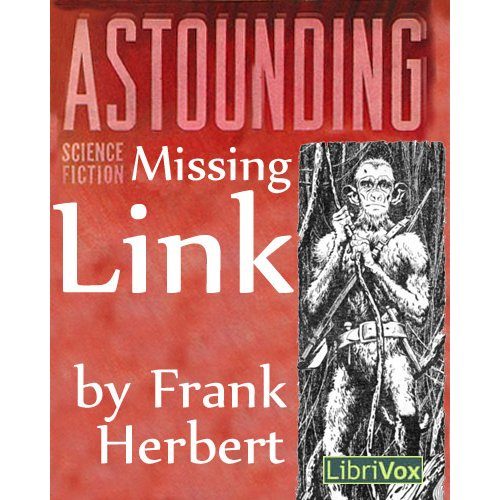When I read Frank Herbert’s Dune as a teenager, it was a revelatory experience. Dune is widely considered to be a crowning achievement in science fiction, and I’ve heard it called “The Lord of the Rings of SF.” I’m aware that it’s polarizing as a book, and that the series as a whole isn’t as well-loved as I’d initially thought, but none of that changes my relationship with those books.
I remember days in high school where I’d float from class to class, not listening to a word any of my teachers were saying, because I was so immersed in the political dealings of the Atreides and Harkonnen, in the zealous fury of the Fremen, and of the extraordinary universe they occupied. Dune hit me like blast to the chest, and changed the way I read.
And even if I hadn’t read anything else by Frank Herbert until somewhat recently (Destination: Void) a few years back, which I thought was strange and wonderful), I considered him one of my writing idols. So you can imagine my delight at discovering a short he’d published in 1959 in the Astounding Science Fiction anthology edited by John W. Campbell.
Missing Link is a great example of Frank Herbert’s work. It’s certainly a product of its time, and not without its representational issues, but at its core is intrigue, political maneuvering, and a clever protagonist with an uncanny ability to read between blurry lines in moments. The story revolves around two conversations, though one’s a bit more action-packed than the other.
In the first conversation our protagonist, Lewis Orne, is talking with the superior officer on his ship regarding the risky mission on which he is about to embark. The conversation smacks of Herbert’s other works; tempers brandished like rapiers, a subtle back-and-forth that’s more fencing than discussion. In this case, we have military personnel frustrated with the bureaucracy, and a scientist caught between. The conversation serves to set the why of the short story. A ship has gone missing near the planet they currently orbit. It’s Lewis’s job to investigate, potentially by encountering the—and here’s the representational issue at the heart of the work—the barbaric/savage denizens of the planet.
The second conversation is another great—and very different—example of classic Herbert. Lewis is on the planet, talking with the leader of the hunting party that found him and attacked his vehicle. During the conversation there’s much to distract us, from the fantastic scenery to the seemingly incongruous amount of technological development on the part of the natives—again, that representation thing. But what happens during that conversation behind the scenes, inside of Lewis’s mind, is Herbertian perfection.
Lewis deduces the location of the missing spaceship and its fate by paying close attention to his captor/passenger’s choice of words. He quickly connects linguistics to anthropological phenomena he witnesses, then subtly shifts the conversation in order to corroborate his hypothesis. It’s that kind of intellect, and that approach to sleuthing out the facts, that attracted me to the Dune universe. And though it’s short, Missing Link was an excellent soupçon of the writing I fell in love with as a teenager.
It also provided some important perspective on how the zeitgeist in speculative fiction has changed. After reading Missing Link, I read a few other pieces, including Mary Robinette Kowal’s Forest of Memory, which I’ll review later this week or next week. The two pieces are radically different, and demonstrate how technological advances have changed the way we view the future, how social changes have changed the way we view the world around us, and how exploration needn’t happen at the expense of the explored. There was a beautiful counterpoint in those reading experiences, which together served as yet another reminder that I’m a fortunate person to be able to spend so much of my time reading and thinking about books.
Missing Link is available for free from Gutenberg, or can be purchased on Amazon.


